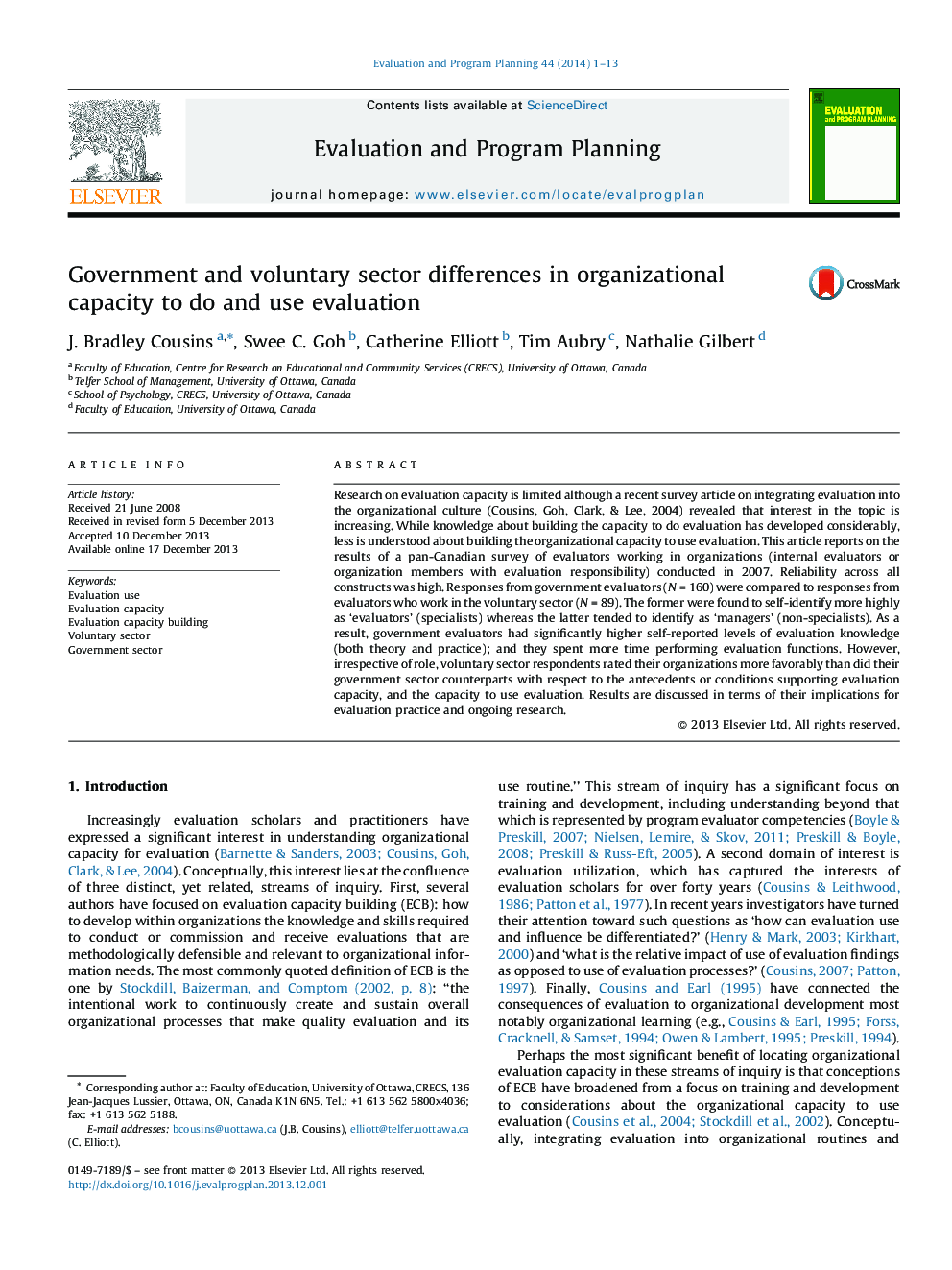| Article ID | Journal | Published Year | Pages | File Type |
|---|---|---|---|---|
| 319414 | Evaluation and Program Planning | 2014 | 13 Pages |
Research on evaluation capacity is limited although a recent survey article on integrating evaluation into the organizational culture (Cousins, Goh, Clark, & Lee, 2004) revealed that interest in the topic is increasing. While knowledge about building the capacity to do evaluation has developed considerably, less is understood about building the organizational capacity to use evaluation. This article reports on the results of a pan-Canadian survey of evaluators working in organizations (internal evaluators or organization members with evaluation responsibility) conducted in 2007. Reliability across all constructs was high. Responses from government evaluators (N = 160) were compared to responses from evaluators who work in the voluntary sector (N = 89). The former were found to self-identify more highly as ‘evaluators’ (specialists) whereas the latter tended to identify as ‘managers’ (non-specialists). As a result, government evaluators had significantly higher self-reported levels of evaluation knowledge (both theory and practice); and they spent more time performing evaluation functions. However, irrespective of role, voluntary sector respondents rated their organizations more favorably than did their government sector counterparts with respect to the antecedents or conditions supporting evaluation capacity, and the capacity to use evaluation. Results are discussed in terms of their implications for evaluation practice and ongoing research.
